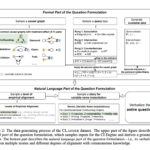Generative artificial intelligence—AI capable of producing fresh text, images, and other media from existing data—is a highly disruptive technology with the potential to reshape various industries. As this technology becomes increasingly accessible and potent, there is a growing concern about its potential misuse to manipulate the United States’ electoral system. Adversarial entities like China, Iran, and Russia could leverage generative AI to escalate cybersecurity threats, streamline the dissemination of fake content, and undermine the integrity of the electoral process.
While the application of generative AI in the upcoming 2024 election may not introduce entirely new risks, it will undoubtedly exacerbate existing vulnerabilities. Adversaries could exploit generative AI to compromise voter registration, manipulate voting procedures, and distort result reporting. The responsibility of safeguarding the electoral process against such threats largely rests on the shoulders of state and local election officials, who have historically shielded the system from various challenges, including foreign interference and technological disruptions.
To effectively combat the potential risks posed by generative AI, a collaborative effort involving federal agencies, voting equipment manufacturers, generative AI developers, the media, and voters themselves is imperative. These stakeholders must provide election officials with the necessary resources, expertise, information, and trust to fortify the security of election infrastructure. Generative AI companies, in particular, can contribute by creating tools to identify AI-generated content and ensuring that their technologies prioritize security to prevent malicious exploitation.
The emergence of generative AI software has revolutionized the creation of diverse media forms, ranging from text to deepfake videos. By leveraging large language models like ChatGPT, users can swiftly generate content across various domains. However, the accessibility of such technology has lowered the barriers for malicious actors seeking to disrupt U.S. elections through cyber intrusions, disinformation campaigns, and social media manipulation.
As the 2024 U.S. presidential election approaches, the potential impact of generative AI on electoral processes is a growing concern. Foreign adversaries are increasingly engaging in activities that target election security and integrity, with generative AI amplifying the scale and efficiency of their operations. The deployment of AI-enabled tools, such as translation services and data aggregation platforms, enables adversaries to automate and personalize their disinformation campaigns, posing a significant threat to democratic processes.
The utilization of generative AI in disinformation campaigns presents multifaceted challenges, including the spread of misleading information, targeted voter suppression tactics, and the creation of deceptive media content. These activities aim to erode public trust in the electoral system and manipulate voter perceptions, highlighting the critical need for proactive measures to counter such threats.
Despite the evolving landscape of electoral security risks, the resilience of the American electoral process lies in the dedication and adaptability of state and local election officials. These officials have demonstrated their ability to navigate complex challenges and ensure the integrity of elections, even in the face of natural disasters and technological disruptions. By implementing robust security measures, enhancing threat detection capabilities, and fostering collaboration with cybersecurity agencies, election officials can mitigate the impact of generative AI threats.
To address the specific risks posed by AI-generated content, election officials should prioritize measures such as multifactor authentication, endpoint detection software, and email authentication protocols to enhance cybersecurity defenses. Additionally, transparent communication with the public, media engagement, and continuous training exercises are essential components of a comprehensive strategy to combat disinformation campaigns amplified by generative AI.
In conclusion, the malicious use of generative AI in electoral processes underscores the importance of collective action and vigilance in safeguarding democratic principles. By enhancing collaboration among stakeholders, enhancing cybersecurity protocols, and fostering public awareness, the United States can mitigate the risks associated with AI-driven disinformation campaigns and uphold the integrity of its electoral system.






